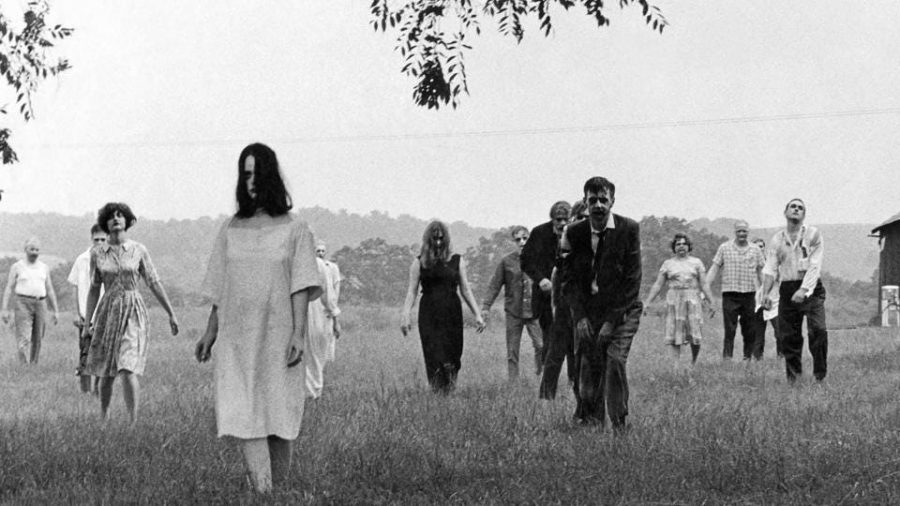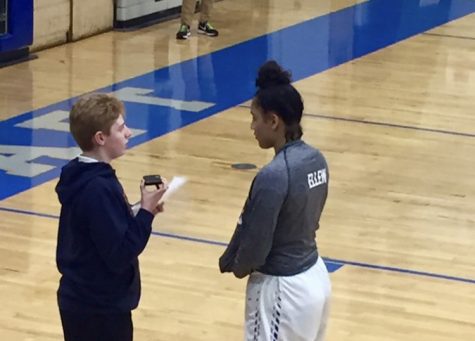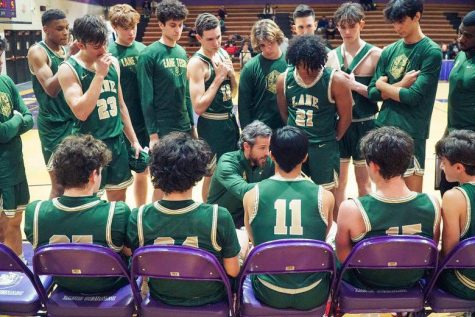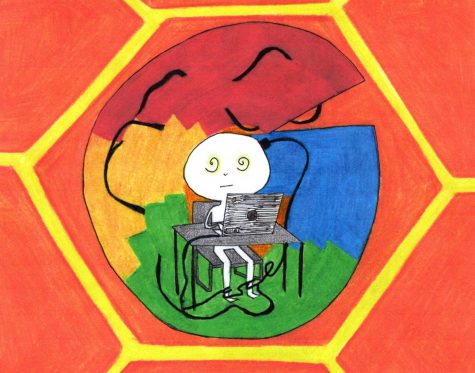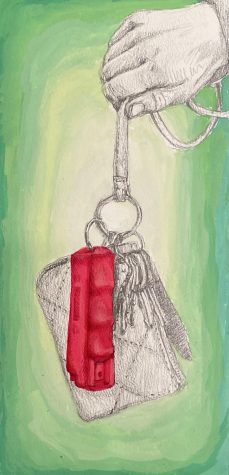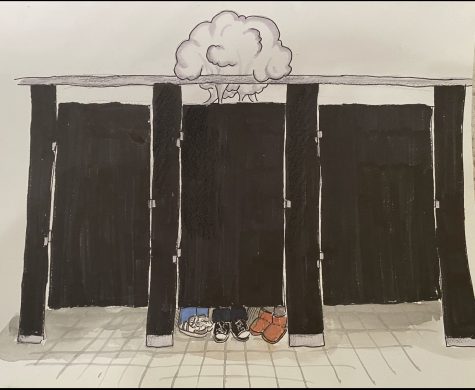A love letter to horror
November 27, 2022
The appeal of horror is its safety. You can escape near-death while nestled in blankets, you can go toe to toe with killer clowns within the safety of your bed. The genre of horror has a magnetism that transforms rationality into an inexplicable desire to step into darkness and the fearsome unknown.
“Sigmund Freud talked about how people have these ideas in their head of love and violence,” said AP Psychology teacher and Stephen King fan, Steven Parsons. “People are always drawn to stories, movies, books, that deal with love and violence: the fear of death or the ability to create new life.”
The fear of death is something that exists within the core of human beings, and this ties in closely to the fear of the unknown, to the point where they are constantly overlapping. However when watching or reading horror stories, people take control of their own destiny. They immerse themselves in a story that promises death; they have no idea what is going to happen, but they chose to be here. They gain a veneer of control over their fate, because you can always turn off the TV or close the book. In horror, terrifying things happen, but you don’t have to die — unlike real life.
“The question is always: will the hero be able to protect himself, save the day, rescue the people that need to be rescued?” Parsons said.
You have no idea. Literally anything could happen. Even knowing it isn’t real, the suspense that is built activates a person’s amygdala because they are anticipating harm. This in turn sends a signal towards two other regions of the brain, including the hypothalamus, which is what causes the fast heart rate that characterizes fear, according to Abigail Marsh, professor of psychology at Georgetown University. In the end, it’s just exciting. Thrilling.
It has been like that since the beginning of cinema; people have always had the desire to explore death and the unknown. One of the first movies created, “Le Manoir du Diable,” sometimes known in English as “The Haunted Castle” or “ The House of the Devil,” made in 1898, is widely regarded as the first horror film ever created, according to the New York Film Academy. Moving into the next century, the golden age of horror (20’s-30’s), many classics were produced. The silent ones: “Nosferatu” (1922) and “The Cabinet of Dr. Caligari” (1920); and the talkies: “Frankenstein” (1931), “Dr. Jekyll and Mr. Hyde” (1931), and “The Mummy” (1932).
The New York Film Academy explains further that once the film industry reached the 40’s and 50’s, horror began to reflect the political circumstances of the world. During this period there were widespread fears of nuclear fallout, and so, movies began featuring antagonists borne out of radioactive incidents, such as “Godzilla” (1954). There was also a fear of invasion, reflected in 1953 chart-topping films “The War of the Worlds and When Worlds Collide.” Throughout this time period, and stretching into the 60’s, filmmaker Alfred Hitchcock rose to prominence. Widely considered to be one of the most influential figures in the history of cinema, he created “Vertigo” (1958), “Psycho” (1960) and “The Birds” (1963).
After that, slashers and disaster movies run rampant — and of course, the world is introduced to Stephen King with his first published novel: “Carrie” (1974).
“[Stephen King] describes men in a way that I find realistic, yet heroic,” Parsons said. “They are sensitive, not macho muscular heroes, but thoughtful, considerate, patriotic heroes.”
Essentially, King’s appeal comes not only from his innate ability to create fear and suspense like no other, but also to create characters who embody justice, fairness and equality, according to Parsons.
Parsons elaborates further on the draw of King’s characters.
“They embody the best of what I think a person could be or should be,” he said. “They are an average person brought under extraordinary circumstances, but yet they act virtuously.”
That is why King is so successful. Beyond his talent for being terrifying, he understands the need for people to feel like the hero. The genre of horror gives a person a chance to experience something fear-inducing, and living within the mind of the characters gives them a chance to walk away from the book feeling like a hero. It gives them the ability to have courage in the very real and very scary aspects of their own life.
But then again, sometimes it is just senseless violence and death — that’s fun too. However the terror manifests, it will be entertaining. It could be brutal, poignant, heart-stopping, or thought provoking, and ultimately it gives you a chance to experience something twisted and intriguing while removing yourself from the monotony of real life.
For all of those looking to immerse themselves in the unknown, darkness and death, check out the Champion’s list of Halloween recommendations.

